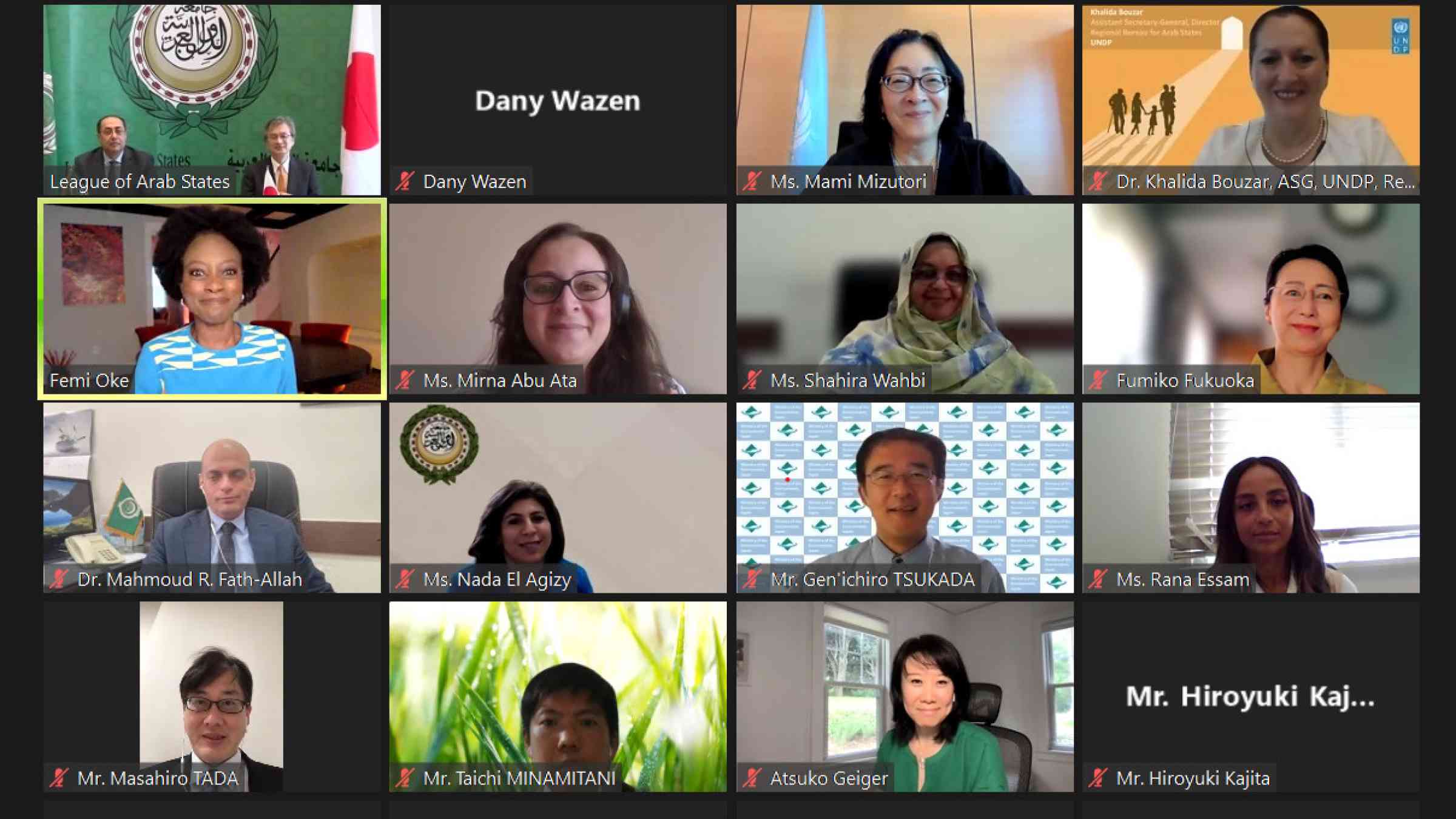UNDRR participates in the Eighth LAS-Japan-UNDP Policy Roundtable: Building Resilience to Climate Disasters and the Road to COP27

28 July 2022, The United Nations Office for Disaster Risk Reduction (UNDRR) participated in the eighth policy roundtable discussion organized by the League of Arab States (LAS) and the Government of Japan, in partnership with the United Nations Development Programme (UNDP), under the title “Building Resilience to Climate Disasters and the Road to COP27.”
The roundtable focused on disaster risk reduction with a special focus on climate-induced disasters and COP27, as climate change is the world’s largest challenge that threatens to exacerbate disaster risks with implications on peace and security. At the global level, disaster-hit countries reported direct economic losses valued at US$2.9 Trillion during the period 1998-2017 with climate-related disasters causing US$2.2 Trillion or 77 percent of the total.
Ahead of COP27, “Egypt is working to mobilize Arab and international support in three main issues of importance to the Arab region that is implementing previous pledges, mobilizing adequate financial resources, and supporting efforts to adapt to the effects of climate change,” highlighted Hossam Zaki, Assistant Secretary General of the League of Arab States, in his opening remarks.
“This discussion is very timely as recent events have shown; the climate emergency is affecting every region of the world,” said Mami Mizutori, the United Nations Secretary-General's Special Representative for Disaster Risk Reduction and the Head of UNDRR, in her keynote remarks. “The human cost of disasters is devastating. Every day, people lose their lives, homes, and livelihoods to floods, droughts, cyclones, or wildfires." Mami highlighted the urgent need to change the course and stop the spiral of disasters and move from risk to resilience to achieve sustainable development.
In his opening remarks, Ambassador of Japan to Egypt Hiroshi Oka called upon the participants to look at Japan’s efforts, which has put in place a set of measures including infrastructure to cope with disaster risks, and explore the possibility of taking lessons that might be useful and applicable to the Arab region in preventing disaster.
“The roundtables have touched on wide issues under the notion of leaving no one behind,” said Dr. Khalida Bouzar, Assistant Secretary-General, Assistant Administrator, and Regional Director for Arab States, UNDP. “Our partnerships and strategic visions have aligned our approaches to support better the Arab States.”
The roundtable addressed climate-induced disaster risks in the Arab region and their implications and building resilience to climate disasters, bringing together policymakers, development experts, and other stakeholders from the LAS, its member states, Arab agencies, Japan, UN, and other international partners. The participants explored the emerging disaster risks from climate change to the region and identified means and best practices for building resilience to climate disasters. The roundtable came to contribute to the implementation of the Arab Strategy for Disaster Risk Reduction 2030 and was convened with the support from the UNDP-UNDRR joint regional workplan 2022-2023 under the Statement of Intent.
The League of Arab States and the Government of Japan, in partnership with United Nations Development Programme (UNDP), launched a series of Policy Roundtables in September 2019, following the success of the first Arab-Japan Political Dialogue in September 2017 and aiming at establishing a policy dialogue platform to discuss common development priorities and concerns, and explore policies and solutions to support the Arab region.
To date, the tripartite partnership has hosted seven Policy Roundtables whose topics included: education and human development; the socio-economic impact of the COVID-19 crisis; digital transformation; sustainable reconstruction and infrastructure towards SDGs; water scarcity; and peacebuilding.